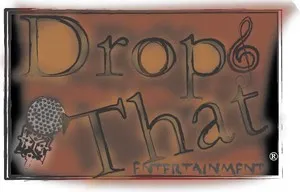
drop that entertainment
191
songs
17.9K
plays

time has come time has come

remember remember

rejoice rejoice

let me tell you let me tell you

got me twisted got me twisted
Show all (191)
Albums
DROP THAT ENTERTAINMENT
PUBLISHING COMPANY
The contractual relationship between a songwriter or music composer and a music publisher, whereby the writer assigns part or all of his or her music copyrights to the publisher in exchange for the publisher's commercial exploitation of the music.
Music publishing has been an important part of the U.S. entertainment industry since the early twentieth century. Songwriter’s contract with music publishing companies to exploit their songs, with both parties sharing the income generated from the songs. Before the introduction of musical recordings, songwriters and publishers earned their income primarily from the sale of sheet music. In the modern era, songs can be commercially exploited in many types of media, including recordings, radio, television, film, and video. Music publishing is governed by U.S. copyright law, but much of the law of music publishing is negotiated through private contractual agreements.
Music publishers are powerful intermediaries between songwriters and recording companies. Typically, a music publisher demands copyright ownership from the songwriter, along with half of the royalties. A publisher may make a large cash advance to a popular or promising songwriter, but often the advance is minimal. In return, the publisher seeks to place the songwriter's compositions with performers who will make a recording. In addition, a publisher will try to place songs in films, television shows, and advertisements. If the songwriter is also a performer, the publisher will assist the artist in obtaining a recording contract. The publisher also assumes the responsibility of collecting royalties and giving the songwriter his share.
Publishing income comes from various sources, but it is separate from income derived from retail sales of recordings. Income from recording sales flows to the owner of the recording (usually the record company), which then pays a contractually negotiated recording royalty to the performer. The owner of the recording separately pays the publisher of the recorded compositions a mechanical royalty for the right to record, copy, and distribute copies of the composition. These royalties are called mechanical royalties because the license is for mechanical recording and reproduction of the composition.
Under U.S. copyright law, a publisher is required to grant a mechanical license to anyone wishing to record a composition that has previously been recorded and released commercially. This is called a compulsory license, and the minimum rate that must be paid to the publisher for such a license is set by Congress at a few cents for each copy made of a recording of the composition. Normally, however, a record label that wishes to record a publisher's composition will negotiate a private license with the publisher rather than follow the strict accounting and reporting rules that accompany recording under a compulsory license. Because of this situation, the statutory compulsory license rate has become the effective ceiling rate for recording a composition, because no one need pay more than the rate set by law.
A lucrative part of music publishing involves performance royalties. Performance royalties are paid when a song is played on the radio or television, used by businesses for background music, or used by clubs for dance music or by bands performing at a club. A popular song can earn thousands and sometimes millions of dollars through the collection of performance royalties. However, it would be too demanding for a publisher to sign performance licenses with every club, radio station, and business office that might use a particular song. Instead publishers and songwriters register with a performing rights organization (PRO) to collect fees on their behalf.
The three PROs in the United States are the American Society of Composers, Authors, and Publishers (ASCAP), Broadcast Music, Inc. (BMI), and the Society of European State Authors and Composers (SESAC). The PROs negotiate blanket licenses with all who use music for profit. Such fees can range from less than one hundred dollars for a small business using music to enhance its business environment, to hundreds of thousands of dollars or millions of dollars for large-scale broadcasting entities. The PROs then monitor radio and television broadcasts and, using a complex statistical model, pay publishers and songwriters based on projected actual uses of a song. When a composition is registered with a PRO, the registrant informs the PRO what percentages of royalties are to be paid to the publisher and songwriter. The PRO issues separate payments to the publisher and to the songwriter (or songwriters). A particular songwriter may only be registered with one PRO at a given time to avoid confusion as to which PRO is responsible for collecting performance royalties on the songwriter's behalf. The use of blanket licenses allows an artist to perform compositions written by another songwriter without first requesting the songwriter's permission.
As opposed to mechanical licenses, there is no statutory rate for the use of a song in films and television advertisements (synchronization licenses), in radio advertisements (transcription licenses), or for sale as sheet music (print licenses). These fees are negotiated separately between the user and the music publisher. The licensee pays the entire fee to the publisher, who then pays the songwriter's share to the songwriter.
Since the 1960s, many popular musical performers have written their own musical compositions. Some of these artists choose to "self-publish," forgoing relationships with publishers and thus retaining full ownership and control of their copyrights. These artists are more often songwriters whose compositions are so unique that they are not likely to be recorded by other performers. Therefore, this type of artist will receive little benefit from an outside publisher's marketing efforts. However, because the music industry's royalty structure assumes that publishing income will be paid to a publisher, a self-published artist often will set up her own publishing company under an assumed name to receive publishing income. A self-published artist will frequently hire an accounting firm to handle specific administrative functions such as royalty collection, for a much smaller fee than a full-service music publisher would demand.Band/artist history
I love music so much that im a music producer. I really got into the producing in 2001 when my kids mother and brother-inlaw handed me a couple of programs that created music, at first i thought i needed alot of studio gear, well you dont if you can "READ MUSIC" ITS REAL SIMPLE WITH ACID PRO.....if you know the music scale your ok, if you know how to count, then you know your "BPM" (beats per miniutes) this is why I have so many tracks. I can compose 3 maybe 4 tracks a day, depend on time of day i started......
Some of my music on here is not for the hip hop genre, some is for soundtracks for movies, jingles, commercials, and while your on hold on the phone etc.....
In 1999 I started going on the road with my homie THE POPPER (rappin since 1995) of the group VETERAN CLICK and his bro DJ FRESH the hot dj of kcmo....
We went to Cinninati, Ohio to Judy Jones Ent. Block Bleeders showcase, man that was cool, acts were there from different states "fat cat records (ATL)", us, block bleeders and host of others. It was a big party, and a major label was in the house.
When I left the party that night, I started doing the research on becoming a producer, and at the end of my search, I did not have to to be a DJ to produce music.... and at the same time (1999) my son is almost 2 yrs old so i did nothing else to pursue my dream as a producer its family time untill 2001 baby-mama and collab with my bro-in-law.....now Im back!!!!!!
Im going to do music, well I really have not stopped, Im just uploading and im not finished I have jazz, world, commercial, etc...
You are looking, hearing, I hope feeling what Im saying. So my music that I compose next will have my trumpet melodies so be listening for those tracks I will label them. Be sure check me out on my website (under construction untill further notice) just check it on a regular bases Im working on it when I get a chance.....Have you performed in front of an audience?Will play live???? I will....... saving to buy my PLATINUM trumpet.
Where....on my tracks I produced for any artist I sign to DTENT.
Not like it, I love it
Moment back in time when we were at Tallehassie, FL. Florida A & M Universities home coming football home game, we were half time show. This was our time to shine cause earlier that day we marched a 3 mile parade (i was much thinner then (LOL), cause if our drum major saw a crowd of people, it was show-time. Back then high school bands was the stuff, our music was the music you hear on the radio.....with a dance that the drum-major,and the band director chorographed together. We win competitions in the state cause nobody was doing it....dancing and playing your instrument at the same time....
Remember Micheal Jacksons "Beat it" and "Thriller" our band played the music and dance for both of his songs when it came out. Just add those to the show.
All during high school what ever music was hot.....best blieve we were perfoming a show behind that song.
Your musical influences
Im more into getting exposer for my artist, plus old school music like O'jays,confunktion, Prince (when he was Prince), earth,wind and fire, need i say more.....
I love todays music also rap, nu school, neo soul,etc.....camron,erika badu,angie stone, west coast rap,east coast,dirty south, I have so many infuencesWhat equipment do you use?
computer,midi board, and acid pro and the internetAnything else?
DROP THAT ENTERTAINMENT
The music publisher is responsible for producing the actual written copy of the musical piece that is then used by musicians to play the song or composition. Many musical publishers work with ethnic music that has not previously been documented in written form to produce and save this music in a way that makes it available to artists all over the world.
A music publisher works with many different professionals including music teachers, composers, musicians and even publishers and agents. With the internet much of the communication can be done online, however there is still a need for the publisher to work closely with the musicians, usually in a personal setting. The music publisher not only records just the music that is played but often adds notations and develops manuscripts on the music to make sure that other artists understand the full presentation of the piece.
A music publisher must have a love and appreciation for music as well as have a strong theoretical background in music composition. He or she is usually formally trained in music notation and classic music understanding. Most musical publishers will also be musicians themselves and may even have composing or music writing experience. Being a music publisher takes both understanding of music and an ability to communicate well with others. For musical publishers working with musicians from other countries a good understanding of languages or an ability to work through an interpreter is essential.
Common work activities include:
Traveling to various locations to work with musicians and record their music in written form for publication.
Understanding and working with various computer programs that provide options for writing music.
Working closely with various music professionals including musicians, professors and composers to capture all the aspects of the music.
Preparing annotated or notational music manuscripts for publication by specific publication dates.
Invoicing and billing for services as well as collecting accounts receivable.
Advertising and marketing the job of a music publisher in various fields and sectors that may have need for the service.
tempe, AZ
USA
ID
705402
Contact
Sorry, this artist currently doesn't accept email messages.
Comments (3)
This beat is hard .... collab ? hit me on IG : beatsinabag
This beat is hard .... collab ? hit me on IG : beatsinabag
Amazing how different people hear things....I've heard all these sounds before...just not together before....nice Mix!!
Promoted
Not related to artist